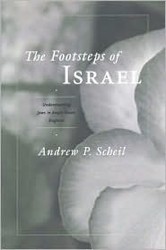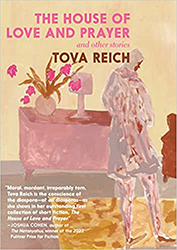Highly regarded in Great Britain as one of the country’s most brilliant attorneys who, among his many accomplishments, served as Princess Diana’s lawyer, Anthony Julius is best known on this side of the Atlantic as Deborah Lipstadt’s attorney in the David Irving libel suit. Julius is also the author of several books, including T.S. Eliot: Anti-Semitism and Literary Form. His new work, Trials of the Diaspora, a history of anti- Semitism in England, will wholly enhance his reputation as a leading scholar of contemporary Jewish history.
Although Jews were expelled from England in 1290 and did not return until Oliver Cromwell welcomed them back in the mid- 17th century, anti-Jewish stereotypes remained alive in Great Britain’s literary tradition. As Julius informs us, anti-Semitism in the form of political parties, pogroms, or legislation were mostly absent throughout much of English history, but thrived in the form of anti- Semitic poems, plays, and novels. From the anonymous medieval ballad “Sir Hugh, or the Jew’s Daughter” through Shakespeare, and such modern figures as Charles Dickens, T.S. Eliot, Hilaire Belloc, G.K. Chesterton, H.G. Wells, and others, literary anti-Semitism kept alive the negative image of the Jew. Thus, it was among the artistic, intellectual, and aristocratic elites, rather than from the masses, that anti-Semitism made important inroads in contemporary English political life, as exemplified by the admiration of Adolf Hitler by many of the British upper class on the eve of World War II.
Julius notes that England’s major contribution to the history of anti-Semitism was the first recorded allegation of Jewish ritual murder of a Christian child, that of William of Norwich, later to be canonized by the church. The ritual murder canard spread to Europe during the Middle Ages, made its appearance in the Third Reich in Julius Streicher’s anti-Semitic propaganda weekly Der Sturmer, and presently has wide currency throughout much of today’s Middle East.
Julius’s concluding chapter deals with contemporary anti-Semitism in England, where proposed academic boycotts of Israel by the left are joined with the hatred of Jews by the ever-increasing Muslim population arriving from the Middle East. As Julius argues, “There is one cause that all leftist, liberal, and reactionary anti-Semites can agree upon…and that is anti-Zionism…most anti- Semites are now anti-Zionists.…These are Jew-haters whose anti-Zionism is nothing more than a posture.…” Julius contends that the objective of this nefarious grouping is to treat Zionism and Israel as illegitimate Jewish enterprises, which he believes constitutes the greatest threat to Anglo-Jewish security and morale.




